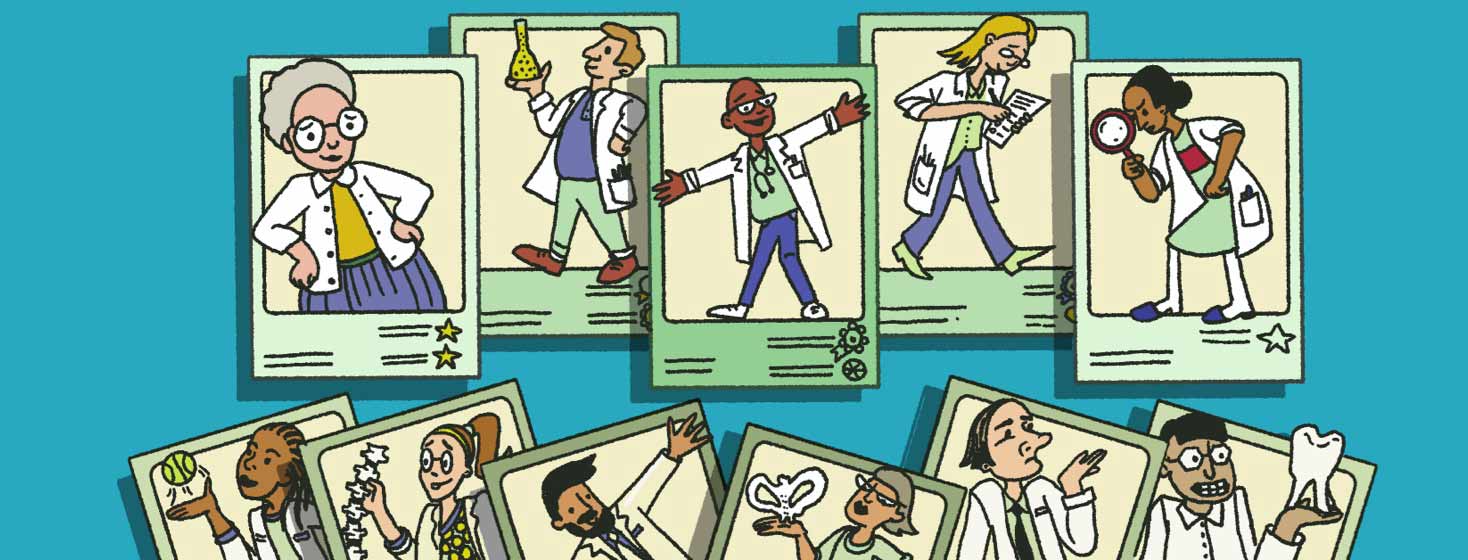What Type of Doctors Treat Rare Kidney Diseases?
Reviewed by: HU Medical Review Board | Last reviewed: February 2023 | Last updated: July 2023
The kidneys filter extra water and waste out of the blood and make urine. They also make hormones that help control blood pressure and trigger the body to make red blood cells. There are more than 150 rare kidney diseases in which the kidneys do not work as well as they should.1-3
If you have a rare kidney disease, the type of doctor who treats it will depend on the stage of your disease and what caused it. Because the kidneys perform so many body functions, many medical professionals may be involved in your care.4
Primary care provider
A primary care provider (PCP) is the doctor you see for regular care. Examples include treating you for the flu or a symptom you are concerned about. Your PCP may be a doctor, nurse practitioner, or physician assistant. Depending on your insurance, you may need a referral from your PCP to see a specialist.4
Many rare kidney diseases need to be treated by a kidney specialist called a nephrologist. However, your PCP will still help manage parts of your kidney disease. They will also manage any other health problems you may have.4
Nephrologist
A nephrologist is a doctor who specializes in kidney care. These doctors get extra training in kidney health after earning their medical degree. They work in hospitals, doctor's offices, and dialysis centers.4,5
If you have concerning symptoms or abnormal test results, your PCP may refer you to a nephrologist. The nephrologist can perform additional tests, like taking a small sample of kidney tissue to look at under a microscope (biopsy). Once you are diagnosed with a rare kidney disease, your nephrologist will often take the lead on your treatment planning.5
If your kidneys begin to fail, your nephrologist will help you decide on a treatment course. They may recommend dialysis, kidney transplant, or conservative care. Conservative care means you choose not to undergo dialysis or transplant.5
Urologist
A urologist is a doctor who specializes in treating diseases of the urinary tract system. This system includes your kidneys, bladder, ureters, and urethra. If your kidney disease is caused by urine backing up into the kidneys, you may be referred to a urologist.7
Cardiologist
A cardiologist is a doctor who specializes in the heart and managing issues related to it. If you have a rare kidney disease that also affects the heart, you may need to see a cardiologist.6
Endocrinologist
An endocrinologist is a doctor who specializes in hormone imbalances and diabetes. The kidneys play a role in hormone balance in a variety of ways. Some symptoms of rare kidney diseases may be related to hormone changes. Hormones can also become imbalanced if the kidneys have a lot of damage. An endocrinologist can help you deal with these issues.8
Genetic counselor
Genetic counselors specialize in hereditary conditions. These are health issues that are passed down from parents to their children. Examples of hereditary rare kidney diseases include polycystic kidney disease (PKD) and Alport syndrome.9,10
Genetic counselors can recommend genetic tests to help look into the causes of your symptoms. They also interpret the test results to make diagnoses. Genetic counselors can help with family planning for parents who want to have a baby but who have genetic conditions that run in their family.10
Nurse
There are several types of nurses who help people with rare kidney diseases. Some specialize in kidney disease and may be called a nephrology nurse or dialysis nurse. They may work in a doctor's office, hospital, or dialysis center. Or they may work for a home health agency. Generally, they help people learn to understand and manage their rare kidney disease and other health conditions.4,11
Dietitian
A registered dietitian is a trained nutrition expert. They can work with you to develop an eating plan that helps you manage your health.4
Some dietitians specialize in working with people who have kidney disease or kidney failure. They are called renal dietitians, and they have extra training in the special needs of people with kidney disease. Many renal dieticians work in dialysis centers.4
Pharmacist
A pharmacist fills prescriptions and can help you learn more about the drugs you are taking. They can also review the prescription and over-the-counter drugs and supplements you take. They can advise you in how to avoid taking unsafe combinations or drugs that harm your kidneys.4
Social worker
If you are nearing kidney failure, you may be referred to a dialysis social worker. This person can help you prepare for the life changes and expenses that often stem from dialysis and kidney failure.4

Join the conversation